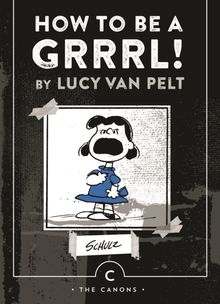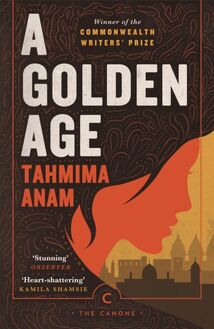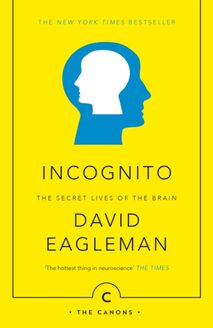Forever Words , livre ebook
85
pages
English
Ebooks
2016
Vous pourrez modifier la taille du texte de cet ouvrage
Obtenez un accès à la bibliothèque pour le consulter en ligne En savoir plus
Découvre YouScribe en t'inscrivant gratuitement
Découvre YouScribe en t'inscrivant gratuitement
85
pages
English
Ebooks
2016
Vous pourrez modifier la taille du texte de cet ouvrage
Obtenez un accès à la bibliothèque pour le consulter en ligne En savoir plus
Publié par
Date de parution
17 novembre 2016
Nombre de lectures
0
EAN13
9781782119951
Langue
English
Poids de l'ouvrage
2 Mo
Publié par
Date de parution
17 novembre 2016
Nombre de lectures
0
EAN13
9781782119951
Langue
English
Poids de l'ouvrage
2 Mo
JOHNNY CASH (1932-2003) was an American icon and country music superstar. Cash first sang publicly while in the air force in the early fifties. Married to country legend June Carter, he became the youngest person ever to be chosen for the Country Music Hall of Fame, and was inducted into the Rock and Roll Hall of Fame in 1992, the Gospel Hall of Fame and is also a member of the Songwriter’s Hall of Fame. Over the course of his career, he appeared in feature films, hosted his own television show, won nineteen Grammy awards, four of them posthumously, and performed everywhere from the Folsom State Prison to the White House. JOHN CARTER CASH , having been involved in music all his life,is an accomplished and award-winning record producer. He is also asinger-songwriter and recording artist. He is the only son of Johnny Cash and June Carter Cash. He is also the author of three children’s books, a biography on his father, one on his mother’s life and a fantasy novel, Lupux Rex . PAUL MULDOON is the author of twelve collections of verse, including Moy Sand and Gravel , for which he won the 2003 Pulitzer Prize for Poetry. He is Howard Clark Professor at Princeton University and is a Fellow of the Royal Society for Literature and a Fellow of the American Academy of Arts and Letters.
edited and introduced by PAUL MULDOON foreword by JOHN CARTER CASH
The Canons edition published by Canongate Books in 2022 Published in Great Britain in 2016 by Canongate Books Ltd, 14 High Street, Edinburgh EH1 1TE
canongate.co.uk
This digital edition first published in 2016 by Canongate Books
Copyright © 2016 by John R. Cash Revocable Trust Introduction © 2016 by Paul Muldoon Foreword copyright © 2016 by John Carter Cash Research and development Steve Berkowitz and John Carter Cash
The right of the John R. Cash Revocable Trust to be identified as the author of this work has been asserted by them in accordance with the Copyright, Designs and Patents Act 1988
This edition first published in the United States in 2016 by Blue Rider Press, an imprint of Penguin Random House LLC 375 Hudson Street, New York, New York 10014
Blue Rider Press is a registered trademark and its colophon is a trademark of Penguin Random House LLC
British Library Cataloguing-in-Publication Data A catalogue record for this book is available on request from the British Library
ISBN 978 1 78689 196 9 eISBN 978 1 78211 995 1
Book design by Lauren Kolm
CONTENTS
Foreword: Redemptions by John Carter Cash
Introduction by Paul Muldoon
Ballad of Johnny Capman
Big-Hearted Girl
Body on Body
California Poem
The Captain’s Daughter
Chinky Pin Hill
Crowley’s Ridge
Dark and Bloody Ground
Does Anybody Out There Love Me?
The Dogs Are in the Woods
Don’t Make a Movie About Me
Don’t Take Your Gun to Town
Forever
Going, Going, Gone (version 2)
Gold All Over the Ground
Gold in Alaska
He Bore It All for Me
Hey, Baby, Wake Up
I Have Been Around (version 2)
I Heard on the News
I Wish You a Merry Christmas
If You Love Me
I’ll Still Love You
I’m Comin’, Honey
Jellico Coal Man
Job
Let’s Put It to Music
Lost My Money in a Buffalo Track
Muscadine Wine
My Song
Room 1702
Silk and Denim
Slumgullion
Spirit Rider
Tecumseh
Tenderfoot from the City
The Things We’re Frightened At
The Walking Wounded
What Would I Dreamer Do
Who’s Gonna Grease My Skillet?
You Never Knew My Mind
Acknowledgments
FOREWORD: REDEMPTIONS
My father had many faces. There was much that made up the man. If you think you “know” John R Cash, think again. There are many layers, so much beneath the surface.
First, I knew him to be fun. Within the first six years of my life, if asked what Dad was to me I would have emphatically responded: “Dad is fun!” This was my simple foundation for my enduring relationship with my father.
This is the man he was. He never lost this.
To those who knew him well—family, friends, coworkers alike—the one essential thing that was blazingly evident was the light and laughter within my father’s heart. Typically, though his common image may be otherwise, he was not heavy and dark, but loving and full of color.
Yet there was so much more . . .
For one thing—he was brilliant. He was a scholar, learned in ancient texts, including those of Flavius Josephus and unquestionably of the Bible. He was an ordained minister and could easily hold his own with any theologian. His books on ancient history, such as Gibbon’s The History of the Decline and Fall of the Roman Empire , were annotated, read, reread, and worn, his very soul deeply ingrained into their threadbare pages. I still have some of these books. When I hold them, when I touch the pages, I can sense my father in some ways even more profoundly than in his music.
My father was an entertainer. This is, of course, one of the most marked and enduring manifestations. There are thousands upon thousands of new Johnny Cash fans every year, inspired by the music, talent, and—I believe hugely—by the mystery of the man.
My dad was a poet. He saw the world through unique glasses, with simplicity, spirituality, and humor. He loved a good story and was quick to find comedy, even in bleak circumstances. This is evident in one of the last songs he wrote within his lifetime, “Like the 309”:
It should be a while before I see Dr. Death So it would sure be nice if I could get my breath Well, I’m not the crying nor the whining kind Till I hear the whistle of the 309 Of the 309, of the 309 Put me in my box on the 309.
Take me to the depot, put me to bed Blow an electric fan on my gnarly old head Everybody take a look, see I’m doing fine Then load my box on the 309 On the 309, on the 309 Put me in my box on the 309.
Dad was asthmatic and had great difficulty breathing during the last months of his life. On top of all this, he suffered with recurring bouts of pneumonia. Still, through the gift of laughter, he found the strength to face these infirmities. This recording is steeped in irony, although made mere days before his passing. His voice is weak, yet the mirth in his soul rings true.
Dad was many things, yes. He was tortured throughout his life by sadness and addiction. His tragic youth was marked by the loss of his best friend and brother Jack, who died as the result of a horrible accident when John R was only twelve. Jack was a deeply spiritual young man, kind and protective of his two-years-younger brother. Perhaps it was this sadness and mourning that partly defined my father’s poetry and songs throughout his life. He was like-wise defined at the end of his life by the loss of my mother, June Carter. When she passed, their love was more beautiful than ever before: unconditional and kind.
Still, it could not be said that any of this—darkness, love, sadness, music, joy, addiction—wholly defined the man. He was all of these things and none of them. Complicated, but what could be said that speaks the essential truth? What prevails? The music, of course . . . but also . . . the words.
All that made up my father is to be found in this book, within these “forever words.”
When my parents died, they left behind a monstrous amassment of “stuff.” They just didn’t throw anything away. Each and every thing was a treasure, but none more than my father’s handwritten letters, poems, and documents, ranging through the entirety of his life. There was a huge amount of paper—his studies of the book of Job, his handwritten autobiography Man in Black , his letters to my mother, and those to his first wife, Vivian, from the 1950s. Dad was a writer, and he never ceased. His writings ranged through every stage of his life: from the poems of a naive yet undeniably brilliant sixteen-year-old to later comprehensive studies on the life of the Apostle Paul. The more I have looked, the more I have understood of the man.
When I hold these papers, I feel his presence within the handwriting; it brings him back to me. I remember how he held his pen, how his hand shook a bit, but how careful and proud he was of his penmanship—and how determined and courageous he was. Some of these pages are stained with coffee, perhaps the ink smudged. When I read these pages, I feel the love he carried in those hands. I once again feel the closeness of my father, how he cared so deeply for the creative endeavor; how he cared for his loved ones.
There are some of these I feel he would have wanted to be shared, some whose genius and brilliance simply demanded to be heard. I hope and believe the ones chosen within this book are those he would want read by the world.
Finally, it is not only the strength of his poetic voice that speaks to me, it is his very life enduring and coming anew with these writings. It is in these words my father sings a new song, in ways he has never done before. Now, all these years past, the words tell a full tale; with their release, he is with us again, speaking to our hearts, making us laugh, and making us cry.
The music will endure, this is true. But also, the words . It is ultimately evident within these words that the sins and sadnesses have failed, that goodness commands and triumphs. To me, this book is a redemption, a cherished healing. Forever.
John Carter Cash 35,000 feet above western Arkansas, flying east . . .
INTRODUCTION
I.
The great artist has a finger on the pulse of his time; he also quickens that pulse. In the case of Johnny Cash, his music seems to well up directly from the poverty and deprivation of country life in the Great Depression, through the uncertainty of World War II, the Cold War, Korea, and Vietnam, to the victories of adulation and the vicissitudes of addiction. We might guess, even if we didn’t know, that Cash’s classic “Five Feet High and Rising” is an account of the flooding with which he was all too familiar from his 1930s childhood in the cotton fields of Arkansas:
How high’s the water, mama? Five feet high and risin’ How high’s the water, pap














